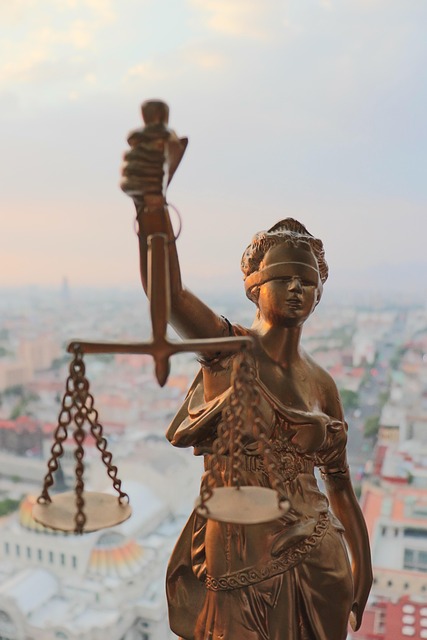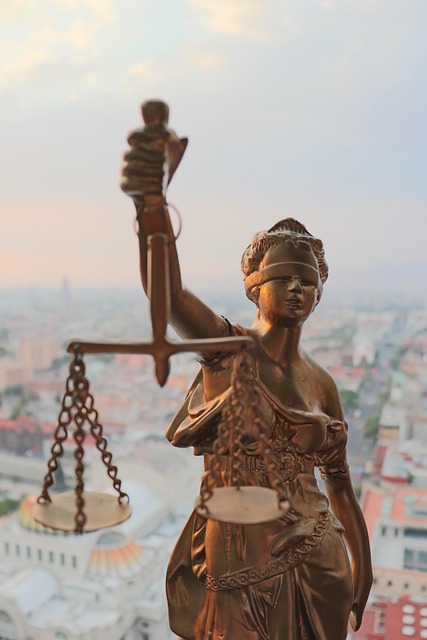Whistleblower Protection Laws safeguard individuals reporting illegal or unethical activities within organizations, offering various personal injury redresses like financial awards, legal fees, and punitive damages (where applicable). These laws empower whistleblowers to report wrongdoing without fear of retribution, fostering transparency in communities. Whistleblower protection lawsuits provide mechanisms for compensation, including monetary damages, injunctive relief, attorneys' fees, and costs, to protect whistleblowers from retaliation. Successful claims require proving good-faith reporting and adverse employment actions, with available remedies including back pay, reinstatement, compensatory, and punitive damages. Strategic approaches maximize these remedies, addressing suffering like reputation damage and emotional distress, deterring future misconduct.
Whistleblower protection lawsuits are a crucial mechanism for holding organizations accountable and ensuring public safety. In an era where corporate misconduct can have far-reaching consequences, understanding legal protections is vital. This article delves into the intricacies of whistleblower laws, exploring key aspects like compensation, personal injury claims, proof requirements, and litigation strategies. By examining these elements, individuals with valuable insights can navigate their rights effectively, securing appropriate Types of Compensation for Personal Injury while upholding justice.
- Understanding Whistleblower Protection Laws
- Types of Compensation: Legal Recourse for Whistleblowers
- Personal Injury: When Action Becomes Necessary
- Key Elements in Proving Whistleblower Claims
- Strategies for Effective Whistleblower Litigation
Understanding Whistleblower Protection Laws

Whistleblower Protection Laws are designed to safeguard individuals who expose illegal or unethical activities within their respective businesses or organizations. These laws offer a range of protections, including preventative measures and remedies for retaliation. In terms of compensation, whistleblowers may be entitled to various types of personal injury redress, depending on the jurisdiction. This can include financial awards for losses suffered due to exposure, legal fees, and even punitive damages in cases where there’s malicious intent behind the retaliation.
Understanding these laws is crucial for those considering coming forward with information that could expose corruption or wrongdoing. By knowing their rights and available forms of compensation, potential whistleblowers can make informed decisions about reporting illegal activities without fear of being targeted or silenced. This is particularly important as it encourages a culture of transparency within philanthropic and political communities, helping to avoid indictment for doing the right thing.
Types of Compensation: Legal Recourse for Whistleblowers

Whistleblower protection lawsuits offer a crucial avenue for individuals who have bravely come forward with valuable information about illegal or unethical activities within organizations. When faced with potential retaliation, these whistleblowers can seek various forms of types of compensation for personal injury to protect their rights and secure justice.
Beyond monetary damages, successful lawsuits may include injunctive relief, ensuring employers cannot discriminate against the whistleblower in future employment opportunities. Additionally, attorneys fees and costs are often recoverable, providing financial support to individuals who might otherwise be deterred from pursuing legal action due to economic barriers. These diverse forms of compensation empower whistleblowers to expose corruption, fostering accountability among corporations and public officials alike, and strengthening the integrity of philanthropic and political communities. Furthermore, the potential for jury trials in such cases adds a powerful element, allowing for public scrutiny and holding wrongdoers accountable under the law. Conversely, white-collar defense strategies often aim to undermine these efforts by employing complex legal maneuvers, emphasizing the need for robust whistleblower protection legislation.
Personal Injury: When Action Becomes Necessary

When an individual suffers personal injury due to wrongful actions or omissions from their employer or another party, it may be necessary to take legal action for compensation for personal injury. Whistleblower protection lawsuits often involve situations where employees come forward with information about illegal activities within their respective businesses. In such cases, they might face retaliation, leading to physical or mental harm that requires medical attention and impacts their ability to work.
The types of compensation available for personal injury in whistleblower cases can include reimbursement for medical expenses, lost wages, pain and suffering, emotional distress, and in some jurisdictions, punitive damages awarded through jury trials to deter future misconduct. Achieving extraordinary results in these lawsuits not only provides financial relief but also serves as a powerful deterrent against unethical practices that could harm employees and the public at large.
Key Elements in Proving Whistleblower Claims

When pursuing a whistleblower protection lawsuit, understanding key elements is crucial for a successful claim. Firstly, the plaintiff must establish that they were an employee or agent of an entity and that they reported illegal or unethical activities to appropriate authorities. This reporting should be done in good faith, meaning there’s a genuine belief in the validity of the concerns raised. The burden then shifts to proving that the employer took adverse employment actions as a result of the report.
Types of compensation for personal injury, including those stemming from whistleblower protection claims, can vary. Damages may include back pay, reinstatement, and compensatory damages for any financial loss suffered. In some cases, punitive damages might be awarded to deter future misconduct, especially when an employer’s actions are found to be malicious or wanton. The general criminal defense strategy of challenging defense verdicts doesn’t apply here; instead, the focus is on demonstrating the validity of the whistleblower’s concerns and the adverse impact on their employment. Moreover, the support of philanthropic and political communities can play a role in strengthening such cases by highlighting the public interest served by whistleblowing.
Strategies for Effective Whistleblower Litigation

When navigating whistleblower protection lawsuits, a strategic approach is essential to ensure success. One key strategy involves understanding and maximizing available remedies, including various forms of compensation for personal injury. Whistleblowers may seek damages for their suffering, such as loss of reputation, emotional distress, and even physical harm caused by the act of whistleblowing. This can be particularly impactful in cases where individuals face severe retaliation from powerful entities within respective businesses accused of white-collar and economic crimes.
Moreover, effective litigation involves a comprehensive approach to compensation. This includes not only monetary awards but also injunctive relief to prevent further harm during all stages of the investigative and enforcement process. Attorneys should focus on securing orders that protect whistleblowers’ anonymity, ensure safe employment practices, and deter future misconduct. Such strategies collectively aim to foster an environment where individuals feel empowered to expose wrongdoing without fear of retaliation.
Whistleblower protection lawsuits play a vital role in fostering transparency and accountability within organizations. By understanding the intricacies of whistleblower protection laws, individuals can navigate their legal recourse effectively. The article has explored various aspects, from recognizing protected disclosures to employing successful litigation strategies. Key takeaways include the availability of diverse compensation options, including Types of Compensation for Personal Injury, and the importance of quickly seeking legal advice to strengthen whistleblower claims. These protections empower citizens to come forward with crucial information while ensuring fair and just outcomes.






